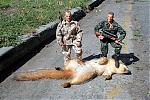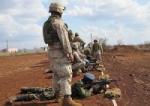I am a bit puzzled about why - if I remember correctly - the Japanese counter-guerrilla tactics (and puppet -building practices) of Japan in China haven't been discussed here, ever.
They had certainly a terrible population: occupation troops ratio, and given the length of the conflict may have to offer many insights.
I guess this is a language barrier issue?












Bookmarks